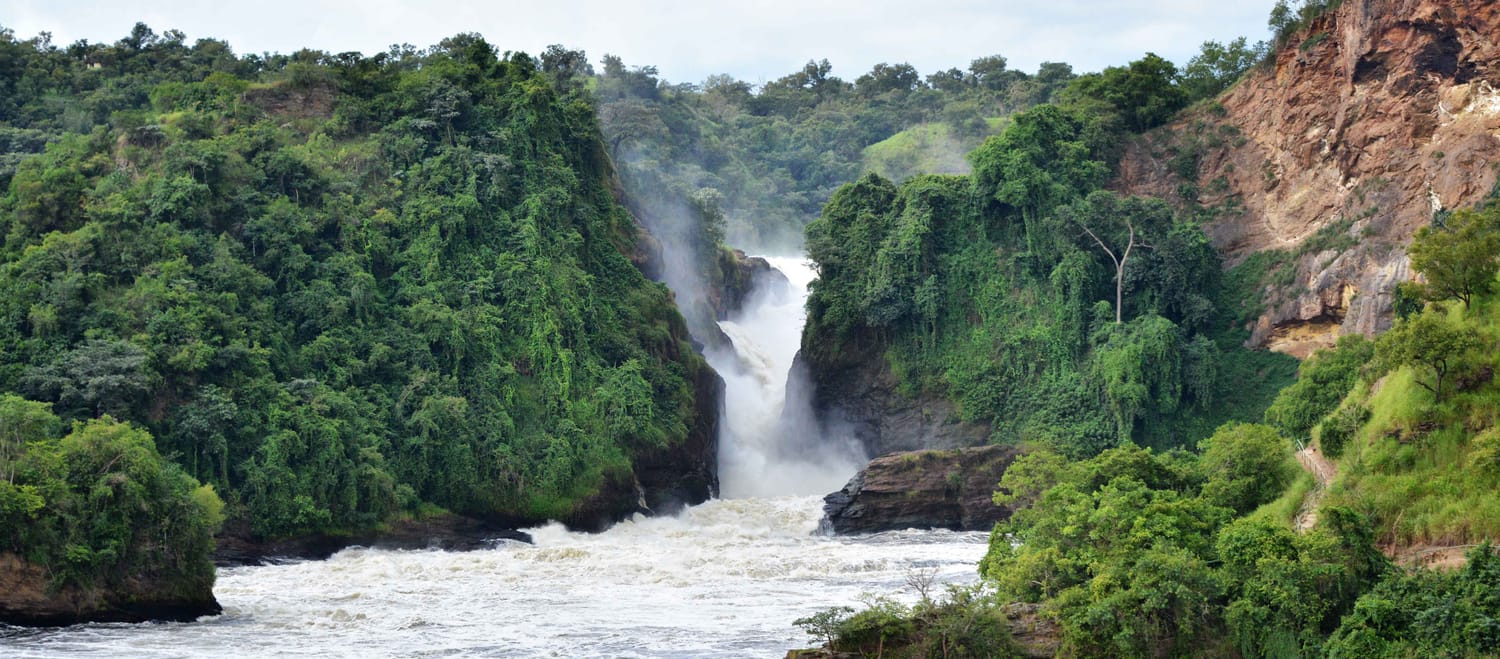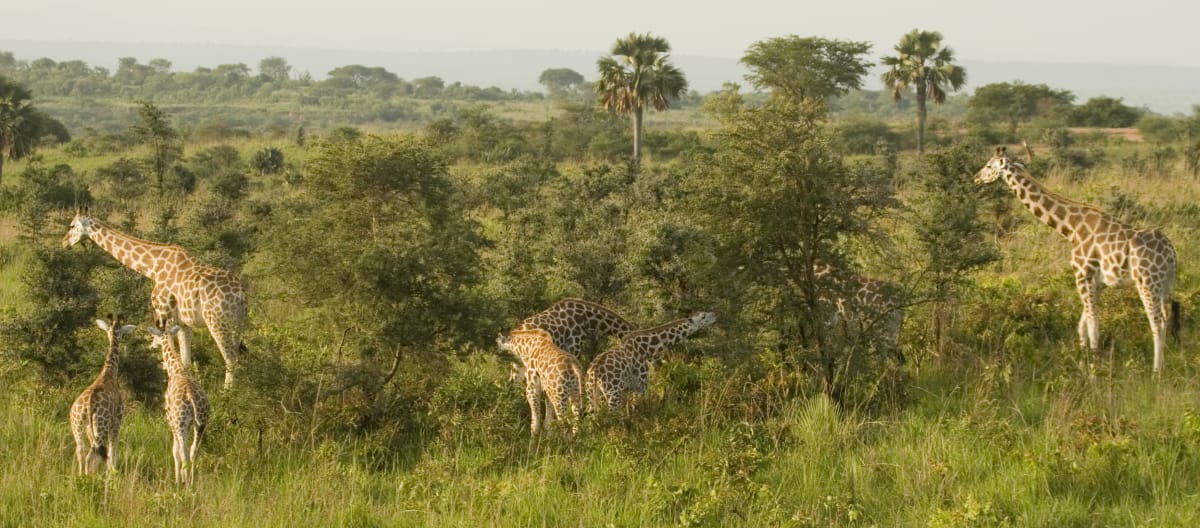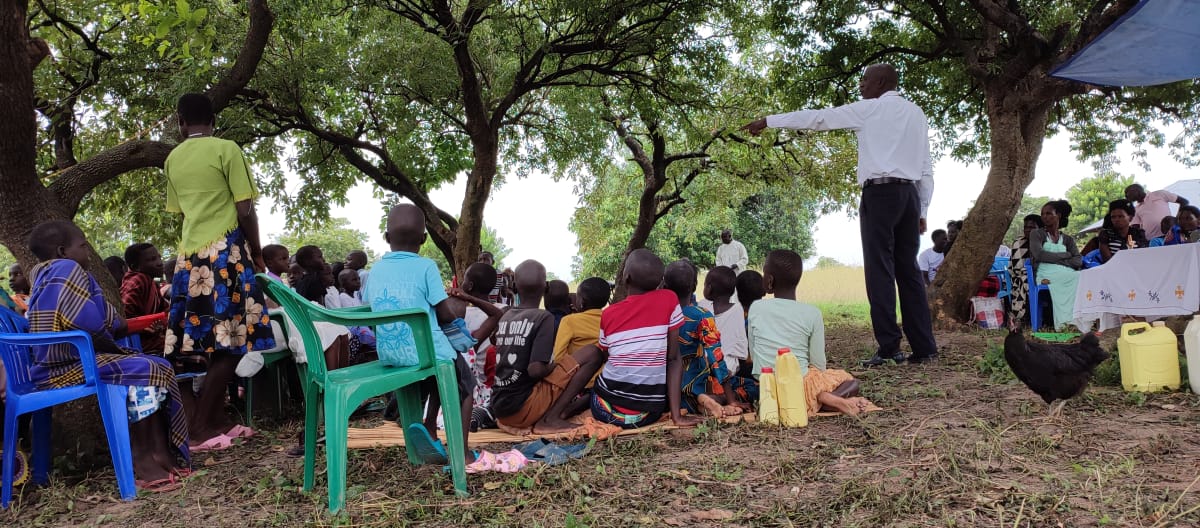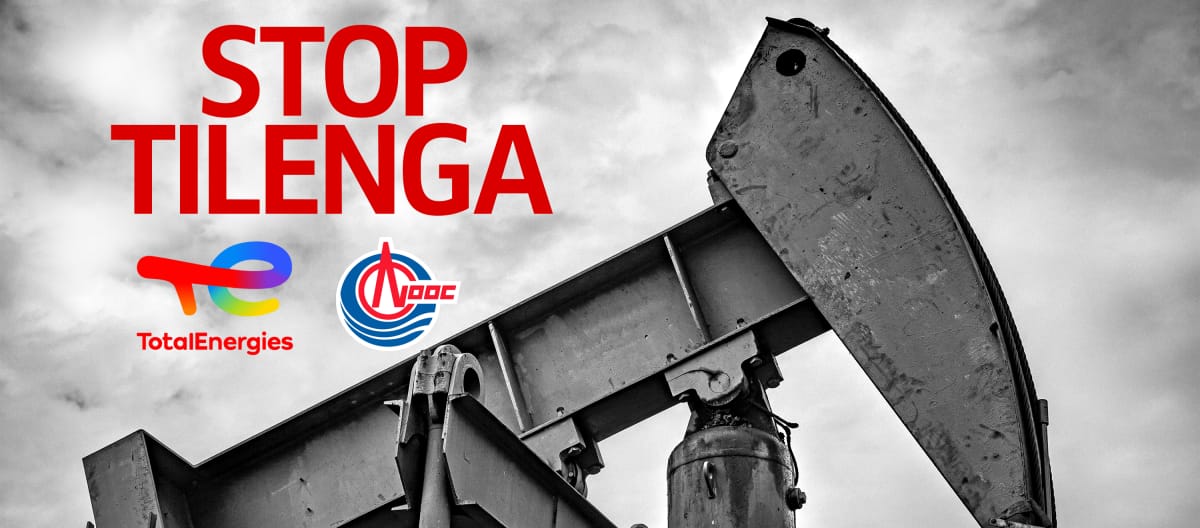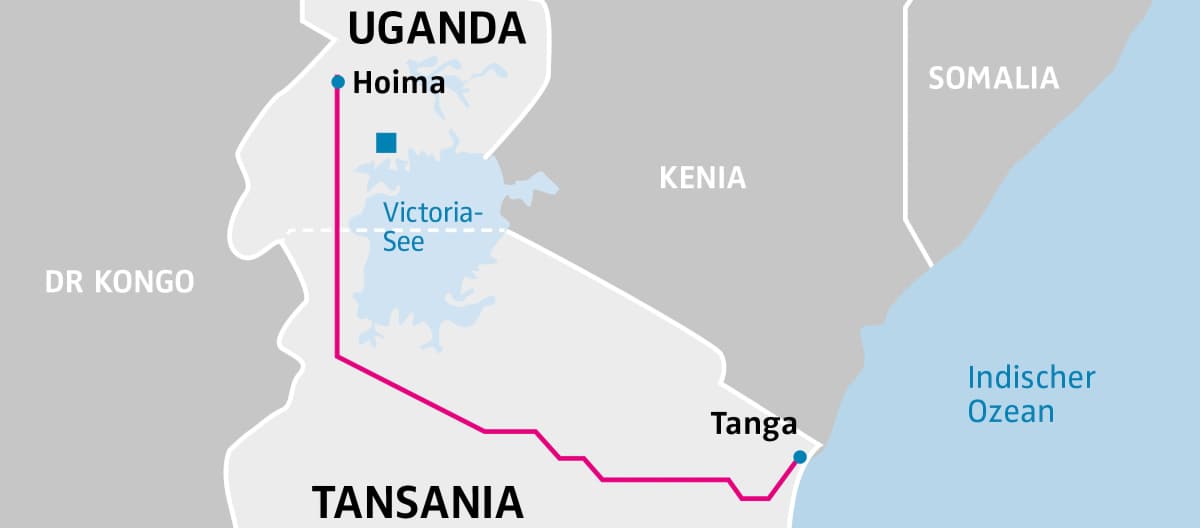Stopping the EACOP oil pipeline
The fossil fuel industry is not letting the climate crisis get in the way of its African oil boom: TotalEnergies is even drilling in Uganda's Murchison Falls National Park. A 1,445-kilometer pipeline is planned to connect the oil fields to the export port of Tanga. Our partner organization Tasha is educating communities about the dangers of the project and supporting those already impacted by it.
Project Overview
Project FocusEcosystems / Rainforest Defenders
Project Objective stopping the construction of the EACOP oil pipeline
Activities raising awareness and supporting affected people
In northwestern Uganda, nature is as magnificent as in few other places in the world. Giraffes, lions and elephants roam the grasslands, chimpanzees live in the forests, hippos and crocodiles dominate the waters, and more than 450 species of birds can be found in the region. The area was placed under protection in 1926, and Murchison Falls National Park was established in 1952. At that time, Uganda was still a British colony.
The park's name refers to the “world's most powerful waterfall”, where the Victoria Nile squeezes through a gorge that is only seven meters wide and plunges more than 40 meters before emptying into Lake Albert.
The power of nature could be defeated by the power of money.”
The national park, Lake Albert, many other fragile ecosystems and millions of people in the region are threatened. The oil industry has set its sights on the land: The Tilenga project includes more than 426 oil wells, and another 31 wells make up the Kingfisher project.
As a landlocked country, Uganda faces the problem of how to export its oil, and the East African Crude Oil Pipeline (EACOP) is expected to provide the solution. The pipeline, which would run 1,445 kilometers through Tanzania to the port of Tanga, would traverse the Lake Victoria basin and cross 200 rivers. A spill would have devastating environmental consequences, polluting up to five wetlands of outstanding ecological value. The pipeline would also threaten the water supply of millions of people. TotalEnergies of France and CNOOC of China have begun construction, and local people are already complaining that elephants are being diverted from their customary routes and wreaking havoc in villages and fields.
Resistance is strong in Uganda and Tanzania, and the international environmental community is alarmed. The impacts of the project go beyond degrading the environment and fueling the climate emergency – it is also leading to human rights violations and loss of livelihoods, as we describe in our petition. Many organizations have joined forces in the StopEACOP network and have already succeeded in getting numerous banks and insurance companies to reject the project.
Two nights in jail for “unlawful assembly”
The Tasha Research Institute Africa is a member of the StopEACOP network. The organization's director, Maxwell Atuhura, is a well-known human rights and environmental activist who is no stranger to being arrested without cause: In May 2021, for example, the flimsy pretext of “unlawful assembly” landed him in jail for two nights. Intimidation, threats and extortion are common experiences for those who oppose oil projects in Uganda.
In late 2021, Rainforest Rescue and Tasha began a partnership in which we provide financial support to the organization. The core of our collaboration is to support the people affected by the oil boom. All too often their land rights have been ignored, and many have lost their fields and gardens. Compensation is far too low and many have been waiting empty-handed since 2019.
Tasha produces radio spots to inform local people about the dangers of the oil industry. Spice FM, Biiso FM and Kazi Njema reach countless listeners in remote areas who would otherwise be cut off from information about their rights, especially those related to their land. But a media presence alone is not enough, so Maxwell Atuhura has invested in a motorcycle and travels to remote villages with his team. In 2023, he reached 350 people in his meetings.
Knowing your rights is the key to resistance.”
Another aspect of Tasha's work is approaching government agencies with very specific demands. One of three local petitions is about air pollution and dust from the construction of a crude oil processing plant.
Tasha is also concerned about the Bugoma Forest, one of the country’s last remaining rainforests. With the oil boom driving up land prices and attracting land speculators, 8,000 hectares of forest are under threat.
The goal of Maxwell Atuhura, Tasha and the StopEACOP alliance is clear: to stop the Tilenga, Kingfisher and EACOP oil projects – for the sake of the people, the climate and nature.











